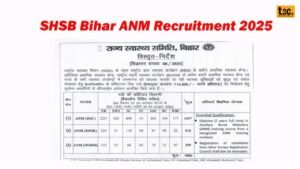NCERT’s New Class 8 Social Science Textbook Omits Tipu Sultan and Anglo-Mysore Wars!

The National Council of Educational Research and Training (NCERT) has recently released a new Class 8 Social Science textbook. This move by the authorities is sparking controversy among historians and educators. The chapter related to India’s colonial era has been deleted, which identifies the key historical figures and events, including Tipu Sultan, Haidar Ali, and the Anglo-Mysore wars.
If you are a student, then tell me in the comment section whether this is the right move for students in their studies or not. Not only this, but also this decision has raised questions about the representation of Indian history and the impact on students’ understanding of the country’s past.
In this blog post, we will explore the implications of these omissions and the potential effects on students’ knowledge of Indian history. Let’s not waste much more time and effort and proceed further with the below-mentioned detailed information regarding the NCERT’s New Class 8 Social Science Textbook.
What’s Missing from the Textbook?
- Tipu Sultan: The textbook no longer mentions Tipu Sultan, also known as the “Tiger of Mysore,” who led four major wars against the British East India Company.
- Haidar Ali, the ruler of Mysore who resisted British expansion, is also absent from the textbook.
- Anglo-Mysore Wars: The series of conflicts between the Kingdom of Mysore and the British East India Company, which played a significant role in shaping India’s history, is not mentioned.
Before proceeding further, take a look at: NMC Directs Medical Colleges to Publish True Course-Wise Fees Stipend Details Online!

What Does the Textbook Include?
- The “Drain of India’s Wealth”: The textbook estimates that India’s wealth was drained by the British, with a loss of $45 trillion (modern value) from 1765 to 1938.
- Construction of Railways and Telegraph Network: The textbook highlights that the construction of India’s railways and telegraph network was funded by Indian taxpayers and served British interests.
- Theft of Cultural Artefacts: The textbook mentions the theft of cultural artefacts from India by colonial powers.
- Resistance Movements: The textbook includes resistance movements such as the Sannyasi-Fakir rebellion, Kol Uprising, and Santhal rebellion.
Why Were These Omissions Made?
According to Michel Danino, chair of the textbook development committee, the decision to omit Tipu Sultan and the Anglo-Mysore wars was made to avoid cramming the textbook with dates and wars. He stated that the focus is on providing a quick overview of Indian history in the Middle Stage (Classes 6-8), with more in-depth coverage reserved for the Secondary Stage (Classes 9-12).
Do not miss out on reading on: IIM Bangalore to Launch UG Programmes in Economics and Data Science from August 2026!
Impact on Students’ Understanding of History
The omission of Tipu Sultan and the Anglo-Mysore wars has raised questions about the representation of Indian history and the impact on students’ understanding of the country’s past. Some critics argue that the exclusions downplay significant chapters of India’s resistance against colonial rule.
Different Perspectives on the Omission
- Historians’ Viewpoint: Some historians argue that the omission of Tipu Sultan and the Anglo-Mysore wars is a significant oversight, as these events played a crucial role in shaping India’s history.
- Educators’ Concerns: Educators are concerned that the omission may lead to a lack of understanding among students about the complexities of Indian history.
- Students’ Rights: Students have the right to know about their country’s past, including the struggles and triumphs of its people.
Cast your eyes on: NEET UG State Counselling Schedule 2025 Released! Check Everything Here!

The Importance of Inclusive History Education
- Representing Diverse Perspectives: History education should represent diverse perspectives and experiences, including those of marginalised communities.
- Promoting Critical Thinking: History education should promote critical thinking and analysis, rather than mere memorisation of dates and events.
- Fostering National Pride: History education should foster national pride and a sense of belonging among students.
Conclusion
The NCERT’s new Class 8 Social Science textbook has sparked a controversy over the omission of Tipu Sultan and the Anglo-Mysore wars. While the textbook aims to provide a more nuanced view of history, the exclusions have raised questions about the representation of Indian history and the impact on students’ understanding of the country’s past. As the debate continues, it is essential to prioritise inclusive and comprehensive history education that promotes critical thinking and national pride.
Recommendations
- Revising the Textbook: The NCERT should revisit the textbook and include the omitted historical figures and events to provide a more comprehensive view of Indian history.
- Promoting Critical Thinking: Educators should promote critical thinking and analysis among students, rather than mere memorisation of dates and events.
- Inclusive History Education: History education should be inclusive and representative of diverse perspectives and experiences, including those of marginalised communities.
Stay tuned on our website, as if any official information pops up, we will update you in minutes! If you want all the latest updates on time, then join our student community on WhatsApp!
Choose the right career yourself by booking personal guidance from professionals on Mytagapp.com







